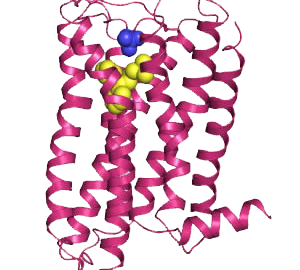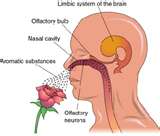My Wish List
Hay Fever FAQ

Hay Fever
Hay fever or seasonal allergic rhinitis is an allergic reaction to pollen and other airborne allergens such as fungal spores. Most people who suffer from hay fever are allergic to grass pollen and many are allergic to tree pollen.
Hay fever is the most common allergy. About 15-20% of us in the UK suffer from hay fever. Hay fever is more common in younger people. Up to 40% of people aged 15-25 are hay fever sufferers.
Hay fever is a result of our immune system’s overreaction to innocuous antigens such as pollen. These antigens stimulate the bodies’ mast cells, which then break or degranulate, releasing mediators that include histamines. These mediators can cause the unpleasant itching, redness, inflammation and other hay fever symptoms.
The Body's Reaction - Producing Histamines
The body’s reaction to pollen is to produce histamines. Normal amounts of histamines in your brain are good - they keep you alert, attentive and awake. But, when there are too many in your body, they produce the various symptoms common to hay fever sufferers including sneezing, a runny nose, nasal congestion, itchy eyes, watery eyes, streaming eyes, swollen eyes, itchy nose and throat.

Antihistamine medicines are available to combat this reaction. An antihistamine works by blocking the action of the histamine. Which works well for some people and is one of the most popular methods of treating hay fever. But because they block the histamine they can also affect the histamines in your brain and therefore cause drowsiness as well as a dry mouth. Many people do not like the idea of putting drugs into their body on a regular basis although others are quite comfortable with this - as long as it works!
And here's a more detailed explanation of how it works...
Hay fever is an allergic reaction to pollen in the air. The body contains antibodies called Immunoglobulin E (IgE). Mast cells have special receptors to which IgE can bind. When two of these mast cell bound antibodies are together the allergen is attracted to them and links them together. When enough of these are so linked, the mast cells will then release histamines. The body needs histamines – in the brain they keep us alert, attentive and awake – but when there are too many in the body, it is these histamines which are mainly responsible for causing the unpleasant symptoms of hay fever. Put more simply, we can tolerate certain amounts of pollen, but there is a sensitivity level above which we will suffer an allergic reaction, triggering the release of histamines. Many remedies therefore rely on anti-histamines – such as loratidine or chlorphenamine - as a first resort. (And it is now clear why anti-histamines can result in drowsiness).
Hay fever Symptoms
Common hay fever symptoms include sneezing, a runny nose, a stuffed up nose, itchy and watery or streaming eyes, nasal congestion and a general stuffed up feeling in the nose and throat.
Some people also experience itching around the face and mouth including an itchy mouth, itchy roof of mouth, and a burning sensation in the throat. Headaches and wheezing can also occur.

Hay fever sufferers may also get an overall achy feeling, or build up of pressure in the entire face area. The sinus area is often the most painful. Constant nose rubbing and blowing can also leave sufferers with skin irritation and sensitivity. All of this can lead to tiredness, fatigue, exhaustion. Hay fever can also affect how you sleep and cause sleep disturbance and difficulty getting to sleep. These symptoms can in turn zap your energy levels leaving you feeling low and sluggish. In some cases this can lead to depression. Chronic hay fever sufferers may experience more severe or prolonged symptoms.
Tips to Reduce Hay Fever Symptoms
- Use HayMax, our organic, drug - free balm can be applied to the nostrils and eyes in the morning and throughout the day, the balm traps the pollen particles before reaching the nose therefore preventing the pollen from irritating the nostrils.
- Close windows and use a air conditioner preferably with a HEPA (High Efficiency Particle Arresting) filter to capture the pollen and dust particles, cool and circulate the air.
- Tie your hair up and wear a hat when outside to prevent pollen particles being caught in your hair.
- Shower at night before sleeping to remove pollen particles and pet hair from your hair and body.
- Wear wrap around sunglasses when outdoors to prevent pollen particles coming in contact with your eyes.
- Dry clothes indoors rather than on a clothes line to prevent pollen particles being blown onto the clothes by the outside wind.
- Stay hydrated and eat lots of fruit and vegetables to stay healthy and support your immune system.
- Vacuum the house regularly especially beds and fabrics to remove pollen particles.
- If you own a pet then ensure that it is well groomed and shampooed as much as possible to remove pet allergens and pollen particles.
- Get plenty of exercise, If you are doing an outdoor activity be sure to do it in the morning or evening when the pollen count is lower.


